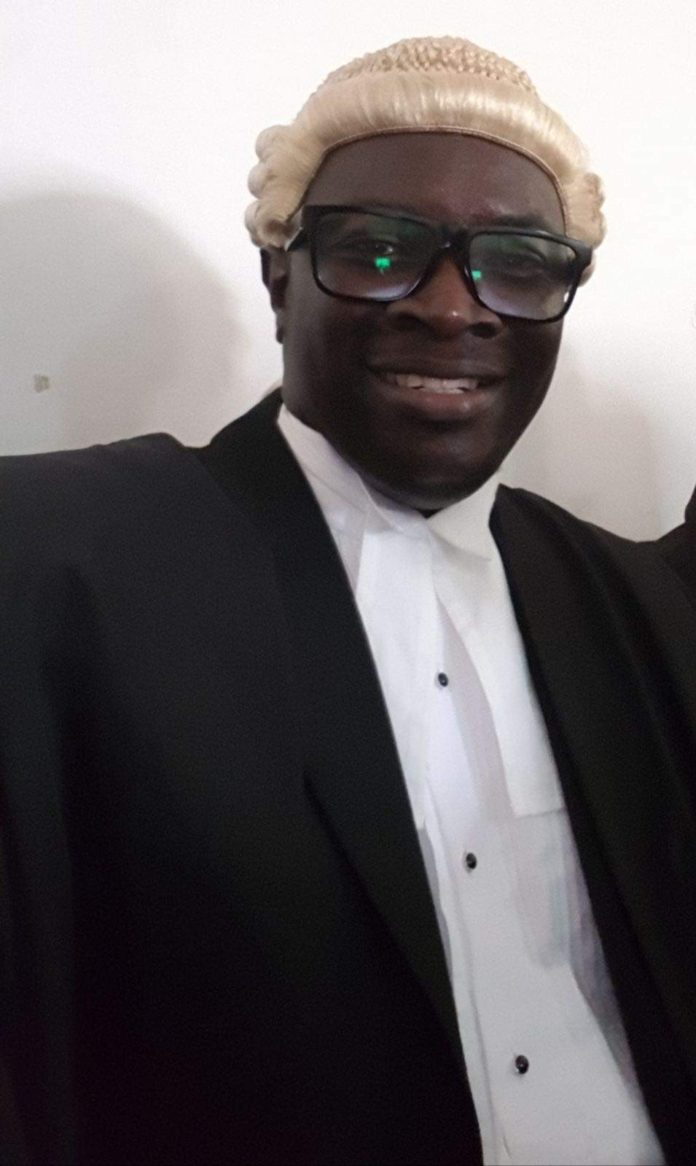There has been much debate recently on Lawyer Darboe with regards to him being qualified to run for the office of the presidency by virtue of the fact that he cannot be qualified to be a President under the 1997 Constitution.
Section 62(3)(a) of the 1997 Constitution reads “A person who, while holding public office in The Gambia has been compulsorily retired, terminated or dismissed from such office shall not be qualified for election as President.” Section 75(5)(a) gives the President the power to terminate the appointment of the Vice President and when one is relieved from his or her position as VP by the President, it is then deemed to mean termination under the corresponding provision of the law which is section 75(5)(a), unless proven otherwise. The above provisions have fuelled a bitter debate on social media space as to the eligibility of Mr. Darboe to run for office.
There is also the confusing provisions between public office and public service which section 230 of the 1997 Constitution has interpreted thus: “Public Office” to “includes an office the emoluments attached to which are paid directly from the Consolidated Fund or directly out of monies provided for by an Act of the National Assembly, and the office of a member of a local government authority or the staff of a public Enterprise”.
Nothing is clear from the above and hence my stance that it can only be made clearer and or interpreted by the Supreme Court of The Gambia. However, until that happens my understanding of these provisions not being read in Isolation, can mean only one thing; these provisions do not have any effect on the circumstances of Mr. Darboe. I have arrived on this conclusion solely by my own understanding of the Law and how it applies to Lawyer Ousainou Darboe.
The ambiguity lies as to who exactly section (62) has in mind: Public office in the civil and public service or Public office with regards to political appointments. I am of the opinion that it has everything to do with the former and this is because of the choice of words the drafters used ie.the first terminology used in section 62(3)(a); “compulsorily retired”. This can only be relevant to public service within the civil and public service and under the doctrine of “Ejusdem Generis”, other words which follow should be interpreted to mean the same if not similar. If this is the case then I do not see how Lawyer Darboe is barred from running for President.
Furthermore, in relying on the same ” Ejusdem Generis” rule mentioned above, one can see that Section (62) seeks to deal predominantly with people working within the civil and public service. Every law that is legislated is never done in isolation and complete oblivion. It is done usually to cure a particular defect. Now it will be downright preposterous for anyone to be fired as a public servant which has to be some action of gross misconduct and only turn around to run for some public office. Thus, this is what the law sought to prevent from happening. Also it is premised on the fact that firing a public servant is not done by a single individual and therefore will not be arbitrarily done. The employers of public servants is the public service commission and the Personnel Management Office respectively. For one to be sacked, it is deemed that one must have violated certain provisions of the General Orders and have been subjected to a disciplinary process which can lead to sacking.
Thus, one can see how the law was couched to ensure that such an individual can then never run for public office after been found wanting for some gross misconduct. When it comes to political appointments, It is clear that the hiring and firing is in the purview of one single authority and therefore sacking can range from political to personal. Such an individual has not gone through any legal process to ascertain wrong doing and thefore cannot be barred from running from office, because he or she could have been sacked for nothing that has to do with their conduct. So in interpreting section (62), I will expect that Judges will apply the mischief rule of interpretation to ascertain what ills that particular provision was intending to prevent.
MELVILLE ROBERTSON ROBERTS
BA, LLB, BL, MST.LLM,
Specialist in International Law, Diplomacy and Foreign policy




